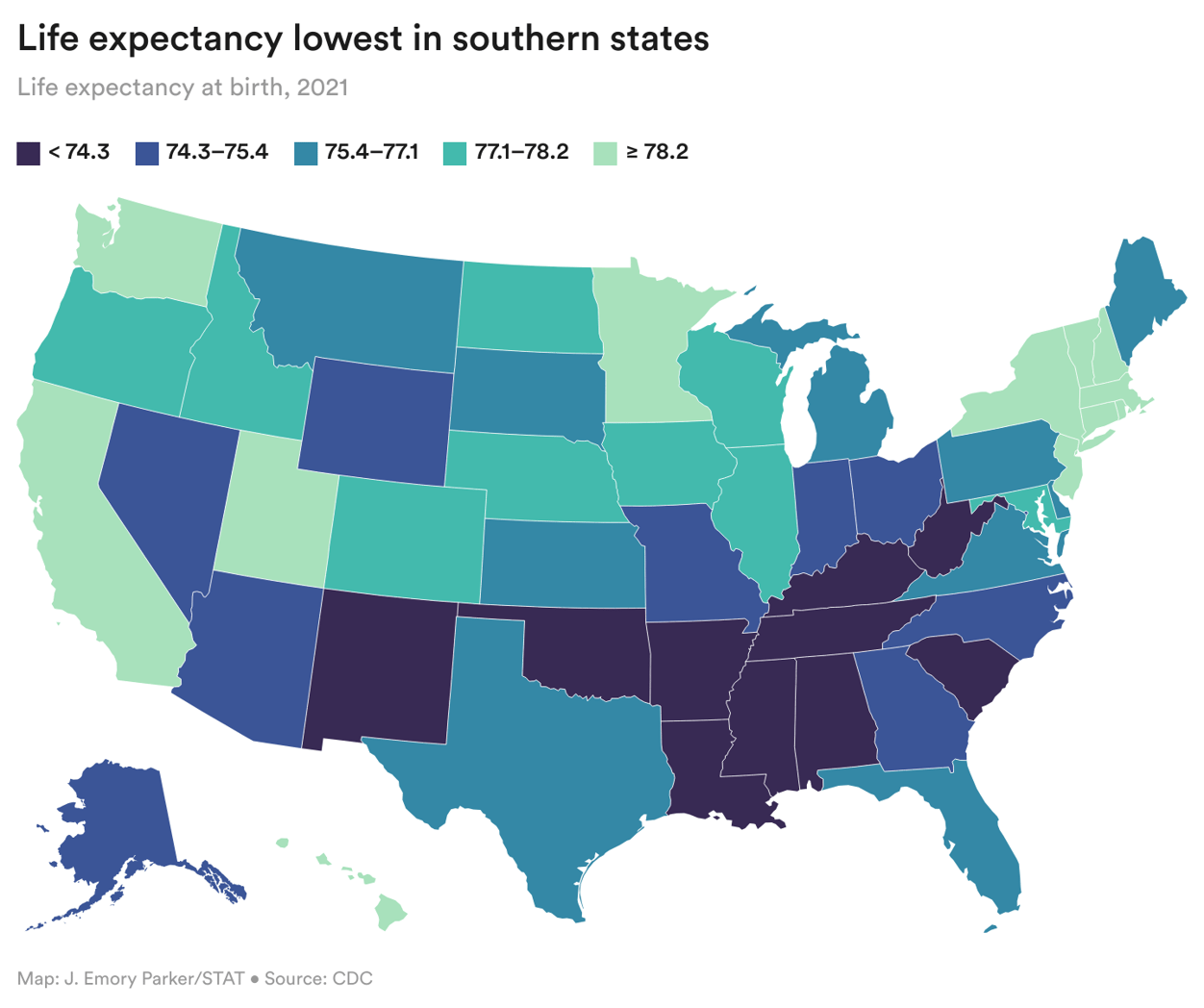state by state
U.S. life expectancy declined in 2021, per CDC data

In 2021, residents of Hawaii had the highest life expectancy at birth at 79.9 years, while Mississippi had the lowest at 70.9 years, according to newly released CDC data. As seen on the map above, residents of southern states overall tended to have the lowest life expectancies, while the highest life expectancies were reported among people in western and northeastern states. For the most part, the states with the lowest life expectancies were also the states with the largest difference between the numbers for men and women. Overall, life expectancy declined by a little more than half a year from 2020 to 2021, mostly due to the pandemic, per the agency's report.
The conclusions are based on "complete period life tables" for each state, which depict how a hypothetical cohort of people would survive if they lived every year of their life in the conditions of a particular period — in this case, the conditions we lived through during 2021. (The tables are "complete" because they include mortality data for every single year of life, rather than data in five- or 10-year intervals.)
pregnancy
There (still) isn't enough evidence on screening for iron deficiency in pregnancy, per USPSTF
Anemia during pregnancy is fairly normal, and is often caused by iron deficiency. It makes sense — your body is producing more blood to grow a literal human being, and so it needs more iron than usual to produce those cells. But if anemia is severe, it can cause complications for both the pregnant person and the fetus. So the U.S. Preventive Services Task Force recently conducted a systematic review of existing research to see if it's worth screening asymptomatic pregnant people for iron deficiency. The group came up empty, noting in a recommendation statement published yesterday in JAMA that the current evidence is insufficient to say either way. The group also determined that there was insufficient evidence to say whether it's helpful for asymptomatic pregnant people to take iron supplements.
It's the same conclusion that the group came to in 2015, when it last reviewed the data. So what now? The recommendations say that clinicians should consider how certain factors like a low-iron diet, gastrointestinal conditions or drugs, tobacco use, and even the altitude at which people live might affect their risk. There are also likely racial disparities in who is most affected by iron deficiency anemia in pregnancy and who is screened already.
In an editorial on the recommendation also published in JAMA, two physicians write that the urgent need for more research "can only be accomplished by ceasing paternalistic approaches that have led to the exclusion of pregnant patients in research."
obesity
New, conflicting evidence on weight loss drugs and suicidal thoughts
As more and more people began turning to blockbuster weight loss medications like Ozempic and Wegovy last year, anecdotal reports of suicidal ideation began to crop up almost immediately. The European Medicines Agency, the FDA here in the U.S., and other researchers have investigated a potential link, but none has found a definitive answer.
Now, there's a new study to add to the mix. Researchers analyzing a WHO database that tracks suspected adverse drug reactions found that people taking Ozempic and Wegovy did appear to experience suicidal thoughts at a higher rate than people on other drugs. But hold on: Experts told STAT's Elaine Chen that they have concerns about the methodology, and further study is needed. Read more on how the new paper adds to the emerging, confusing picture around GLP-1 drugs and mental health.


No comments